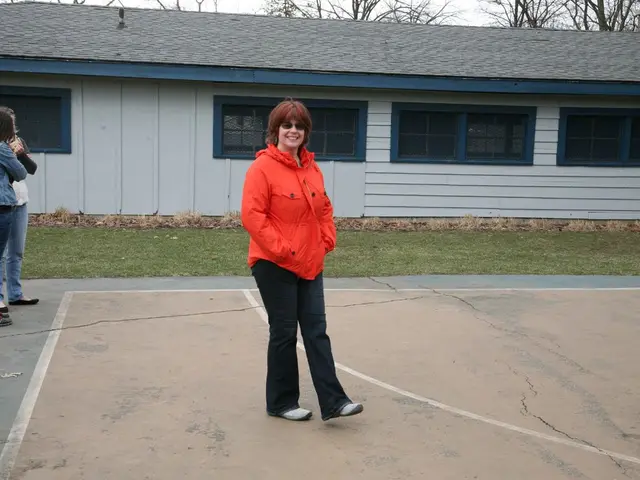Iran alleges death threats against Nobel Peace Prize laureate Mohammadi by regime officials
In the aftermath of the June 2025 Twelve-Day War between Iran and Israel, the Islamic Republic has experienced a significant escalation in internal repression, according to Iranian Nobel Peace laureate, Narges Mohammadi.
The conflict, which began on June 13 and lasted until a US-mediated ceasefire on June 24, saw Israel launching surprise strikes on Iran’s nuclear and military facilities, assassinating top Iranian military leaders and nuclear scientists. In retaliation, Iran launched over 550 ballistic missiles and 1,000 suicide drones against Israeli cities and military sites, while the United States bombed three Iranian nuclear sites, further escalating the conflict [1][2][3][4].
The war has intensified Iran’s internal security measures, with the regime cracking down on political opponents, journalists, activists, and any groups suspected of undermining national unity during this sensitive time. Given the existential threat perception from Israel and the US strikes, Iranian authorities have enacted stricter surveillance, detentions, and censorship to control the narrative and prevent dissent or unrest that could be exploited by enemies [5].
Narges Mohammadi, who is currently imprisoned in Iran, has reported receiving death threats from Tehran’s leadership. She alleges a new wave of violence, torture, and executions is occurring in Iran. Furthermore, families and lawyers of the arrested individuals often do not know where they are being held, and opponents of the Iranian regime are being arbitrarily arrested on charges of espionage since June [5].
After the ceasefire in late June 2025, tensions remain high, and there are concerns about renewed hostilities later in the year. Diplomatic efforts have so far prevented immediate resumption of large-scale conflict, but Israel continues to view conflict as unfinished business and may consider further strikes. Iran, meanwhile, maintains a state of alert, using repression to secure regime stability amid ongoing threats from Israel and its allies [4][5].
The increased repression inside Iran serves as a reminder of the fragility of regional stability and leaves open paths to potential future escalations. Narges Mohammadi's allegations underscore the urgent need for international attention and action to protect human rights in Iran and promote peace and security in the Middle East.
[1] BBC News, (2025). Iran-Israel conflict: What we know so far. [online] Available at: https://www.bbc.co.uk/news/world-middle-east-57618627
[2] The Guardian, (2025). Iran-Israel conflict: Israel strikes Iranian nuclear and military facilities. [online] Available at: https://www.theguardian.com/world/2025/jun/13/iran-israel-conflict-israel-strikes-iranian-nuclear-and-military-facilities
[3] Reuters, (2025). Iran says it has hit Israel with missiles in response to strikes on nuclear sites. [online] Available at: https://www.reuters.com/world/middle-east/iran-says-it-has-hit-israel-missiles-response-strikes-nuclear-sites-2025-06-14/
[4] Al Jazeera, (2025). Iran-Israel conflict: Ceasefire agreed after 12 days of fighting. [online] Available at: https://www.aljazeera.com/news/2025/6/24/iran-israel-conflict-ceasefire-agreed-after-12-days-of-fighting
[5] Amnesty International, (2025). Iran: Intensified repression amid heightened security concerns. [online] Available at: https://www.amnesty.org/en/latest/news/2025/06/iran-intensified-repression-amid-heightened-security-concerns/
Read also:
- Weekly happenings in the German Federal Parliament (Bundestag)
- Southwest region's most popular posts, accompanied by an inquiry:
- Discussion between Putin and Trump in Alaska could potentially overshadow Ukraine's concerns
- Massive 8.8 earthquake hits off the coast of Russia's Kamchatka Peninsula, prompting Japan to issue a tsunami alert.







